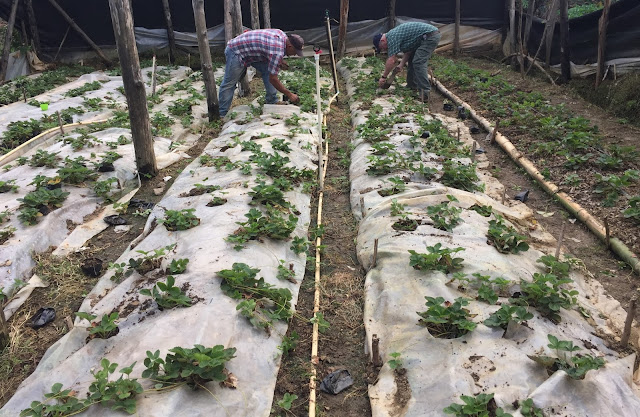Increasing Strawberry Production in the Dominican Republic

The Sabaneta Women’s Group is an association founded in 2013 by the community of Sabaneta, in San José de las Matas, Dominican Republic. It is currently composed of 10 members, who usually meet once a month to discuss key points, work on sustainable communal projects and reforestation, and organize interesting lectures. They also have a small savings group that includes children, youth and men. Since the beginning, they have grown and developed several coffee products and in 2019 decided to start a project focused on strawberry and vegetable production to diversify plantation areas. They allocated approximately 1,000 square meters of land in a greenhouse to strawberry production. Strawberry cultivation is very dynamic that has many variables. Quality fruits can be grown in a period of eight months, between 800 and 1,300 meters above sea level, with optimal conditions taking place between October and May. In mid-2019, the Sabaneta Women’s Group requested a Farmer-to-Farmer voluntee...


